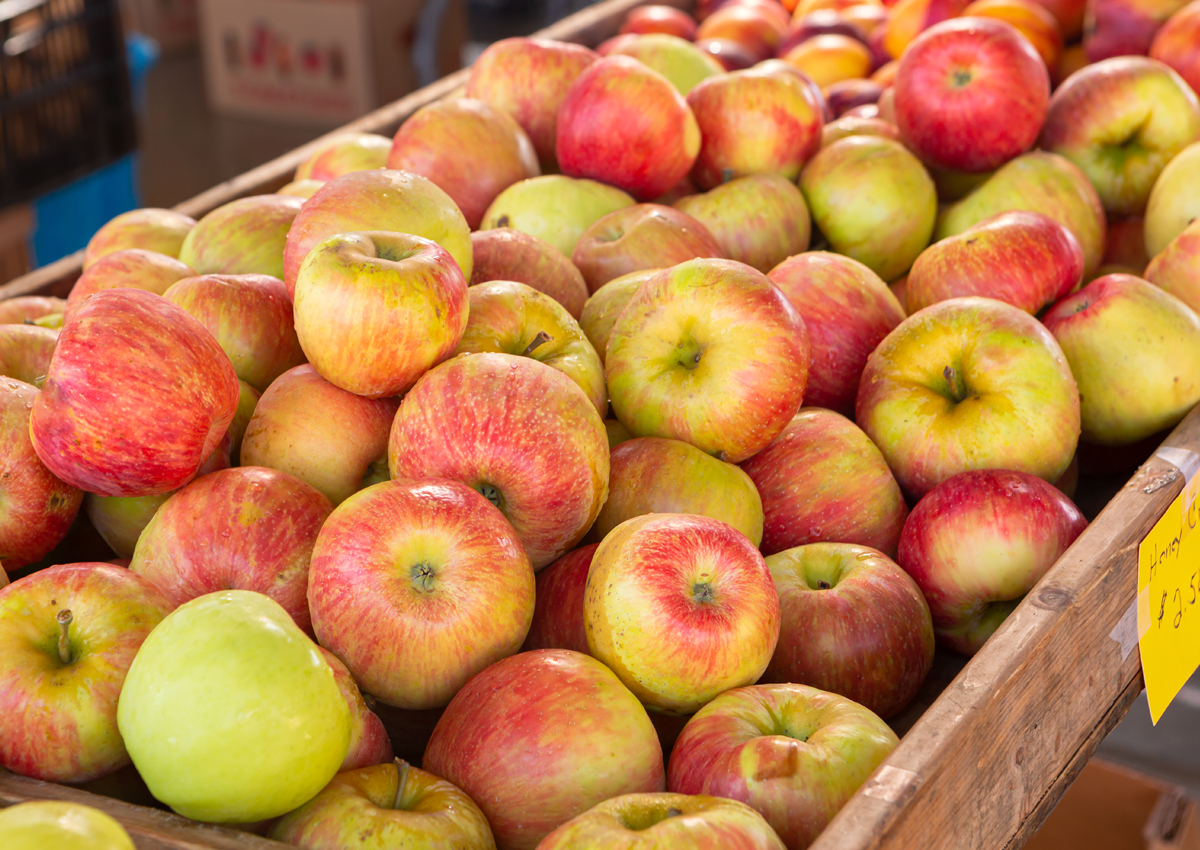
Scientists Sequence Honeycrisp Apple Genome
November 2, 2022| |
A team of researchers from the United States has sequenced the Honeycrisp apple genome, which provides a valuable resource for understanding the genetic basis of important traits in apples and other tree fruit species, which can be used to enhance breeding efforts.
According to Awais Khan, associate professor in the School of Integrative Plant Science at Cornell AgriTech and the first and co-corresponding author of the paper in Gigabyte, growing Honeycrisp can be challenging. “Although it has many positive traits, it's one of the most difficult apple cultivars to grow in the production system in orchards; it suffers from many physiological and post-harvest issues," he said.
On their own, Honeycrisp trees have difficulty getting enough nutrients and require a specific nutrient management program for good yields and health, Khan said. Without such management, the trees commonly develop “zonal leaf chlorosis,” where leaves turn yellow and curl due to carbohydrate and nutrient imbalances. Honeycrisp apples are also susceptible to disorders such as bitter pit, due to calcium imbalances, and bitter rot, a fungal infection. Such issues are fundamentally genetically controlled, though improper handling and post-harvest storage can make them worse.
Genetic sequencing technology made it possible to sequence, assemble, and publish the Honeycrisp genome in a short time. Using advanced methods, the Honeycrisp genome covered 97% of all the protein-coding genes. By comparison, the 2010 Golden Delicious genome assembly only covered 68% of the genes.
For more details, read the article in Cornell Chronicle or download the open-access paper in Gigabyte.
| |
You might also like:
- Apple Genome Sequence Published
- Exploring the Origins of the Apple
- Scientists Crack the Apple Genome
Biotech Updates is a weekly newsletter of ISAAA, a not-for-profit organization. It is distributed for free to over 22,000 subscribers worldwide to inform them about the key developments in biosciences, especially in biotechnology. Your support will help us in our mission to feed the world with knowledge. You can help by donating as little as $10.
-
See more articles:
-
News from Around the World
- Scientists Sequence Honeycrisp Apple Genome
- Australia's OGTR Invites Comments on Commercial Import and Distribution of GM Chrysanthemum
- Prospects of Purple Tomato in Australia
- ISAAA Webinar: Research and Development of Biotech Crops in the Philippines
- India's GEAC Recommends the Environmental Release of GM Mustard DMH-11
- Research Team Presents Circadian Clock Insights that Could be Key to Increased Wheat Yield
- UK’s Precision Breeding Bill Enters House of Lords
- Breakthrough in Panama Disease Control in Bananas
-
Research Highlights
- Drought-tolerant Sugarcane Performs Well in Chinese Field Trials
- Rice Genes Reveal Alternative Sources of Rice Blast Resistance
-
Plant
- CRISPR Technology Market to Drive More Business Opportunities
- Government Regulations Affect Public Perception on Gene-edited Crops -Study
-
Read the latest: - Biotech Updates (January 28, 2026)
- Gene Editing Supplement (January 28, 2026)
- Gene Drive Supplement (February 22, 2023)
-
Subscribe to BU: - Share
- Tweet

